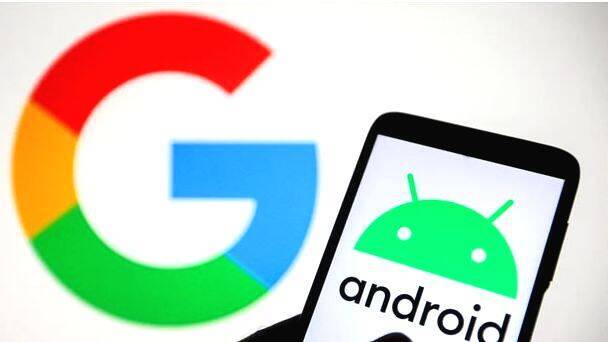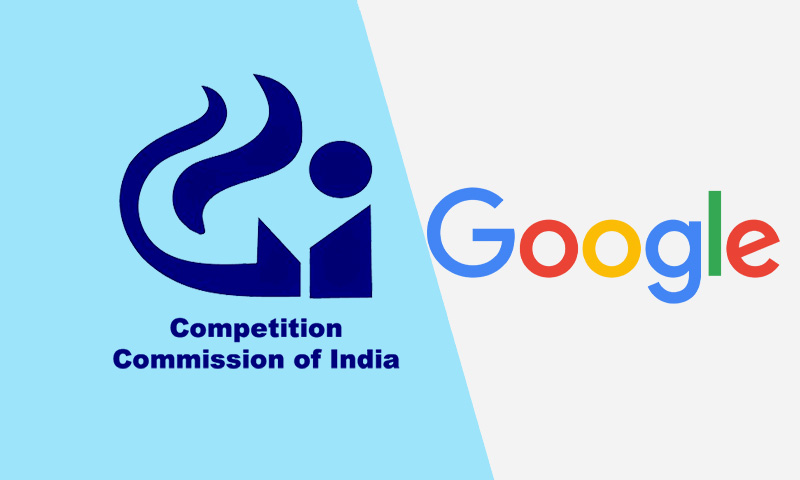Google Play Store Controversy: The Tech Giant Is Under Lens For Abusing Its Dominant Position In The Market!
In its probe, the CCI accused Google Play Store of maintaining and exploiting its dominating position in the online search and app store markets, denying market access to rival search applications and safeguarding the dominance in a general online search.

Google Inc has withdrawn its Supreme Court appeal against the NCLAT’s ruling rejecting Google Play Store’s request against the CCI penalty of ₹ 936 crores in the anti-competitive case. A court led by Chief Justice DY Chandrachud dismissed Google’s appeal without hearing any arguments earlier this week. Previously, Google Play Store had submitted a plea to withdraw its appeal against NCLAT.
In October last year, the Competition Commission of India fined Google for unfair commercial practices in the Android ecosystem and Play Store. Following an inspection, the CCI imposed two fines totalling ₹1337.76 crores and ₹ 936.44 crores on Google for anti-competitive practices in its Play Store regulations and the Android mobile ecosystem. The competition commission prescribed eight remedial actions for the corporation to implement in its play store for fair competition practises in its October judgement.

In its probe, the CCI accused Google Play Store of maintaining and exploiting its dominating position in the online search and app store markets, denying market access to rival search applications and safeguarding the dominance in a general online search. According to the CCI, it investigated numerous Google practices related to the licencing of its Android mobile operating system and proprietary mobile apps like Play Store, Google Search, Google Chrome, and YouTube.
The CCI ordered Google Play Store in October 2022 to let app developers employ third-party billing or payment processing services for app and in-app purchases. CCI deemed Google’s restrictions requiring the usage of the Google Play Billing System (GPBS) for paid applications and in-app purchases to be an undue burden on app developers in its decision. The CCI determined that Google engaged in discriminatory practices by refusing to use GPBS for its application, YouTube.
The competition regulator noted that it uncovered apparent anomalies and broad disclaimers in Google’s revenue data points. In the interest of justice and achieving the required market adjustment early, the CCI estimated the preliminary monetary penalties based on the data provided by Google. As a result, the CCI issued a temporary penalty of 7% of Google’s average relevant revenue, equal to ₹ 936.44 crores, for breaching Section 4 of the Act.
Every criterion outlined in Section 4 of the Competition Act confirms Google’s abuse of dominance, including forced pre-installation, first-placement, and bundling of essential programmes. As a result of such practices, unjust conditions and extra requirements are imposed.

The defence by team Google Play Store.
Google highlighted in its appeal that the CCI probe was “tainted,” claiming that the two informants whose complaints prompted the fair trade regulator to launch the inquiry worked at the same office that was probing the tech giant. According to Google’s complaint, the CCI failed to conduct an “impartial, balanced, and legally sound investigation” by ignoring information from Indian consumers, app developers, and OEMs.
Google filed an appeal with the CCI, claiming that the conclusions are “patently erroneous and ignore” the realities of competition in India, Google’s pro-competitive business model, and the advantages provided for all stakeholders. Google argued that DG copied and pasted heavily from a European Commission judgement, utilising evidence from Europe not evaluated in India or the Commission’s file.
Following this, Google, which has continuously refuted the allegations made in the CCI’s investigations, stated that the CCI’s ruling against it was a “setback” for Indian users and companies and will seek a stay of the order. The firm filed an appeal against CCI’s ruling before NCLAT in December last year, but CCI rejected the company’s request. It later contacted the Supreme Court over the subject.
In February 2023, the social media behemoth suffered a severe defeat when the NCLAT dismissed its appeal against the CCI’s anti-competitive action penalty of ₹ 1,337 crore. The NCLAT ordered the IT firm to pay ₹ 1,337 crores within 30 days.

The stance of CCI.
During the hearing, CCI asserted that Google had achieved digital data hegemony and demanded market space with “free, fair, and open competition.” Additional Solicitor General N Venkataraman, who represented CCI before the appellate panel, stated that a market with greater openness for all companies would be more in line with free market principles than the internet giant’s ‘walled garden’ strategy.
He said that Google had used its money-making search engine as a ‘castle,’ with the rest of the applications serving as a ‘moat’ for defence. This ‘castle and moat’ strategy is called data hegemony, which means that a large market participant tends to grow while small entry struggles to reach a critical mass of people and user data.
Data collection and data deployment are being abused and monetised as advertising profits. When the fundamental premise of competition law is choice, Google’s predominance limits both choice and competition.
The final updates.
From April 26, 2023, the updated Play Store policies will allow app developers to provide customers’ preferred billing systems alongside Google Play‘s payment system within India. While developers are now paying a 15-30% commission for utilising Google’s platform and payment, under the new policy, app developers who choose to use another payment method or third-party payment providers for subscriptions and premium applications would receive a 4% reduction commission.
However, policy think tank Alliance of Digital India Foundation (ADIF) has asked CCI to investigate Google’s ‘abusive dominant practises’ as soon as possible, claiming that the 11-26% service fee for in-app purchases will be a fatal blow for the Indian startup ecosystem.




